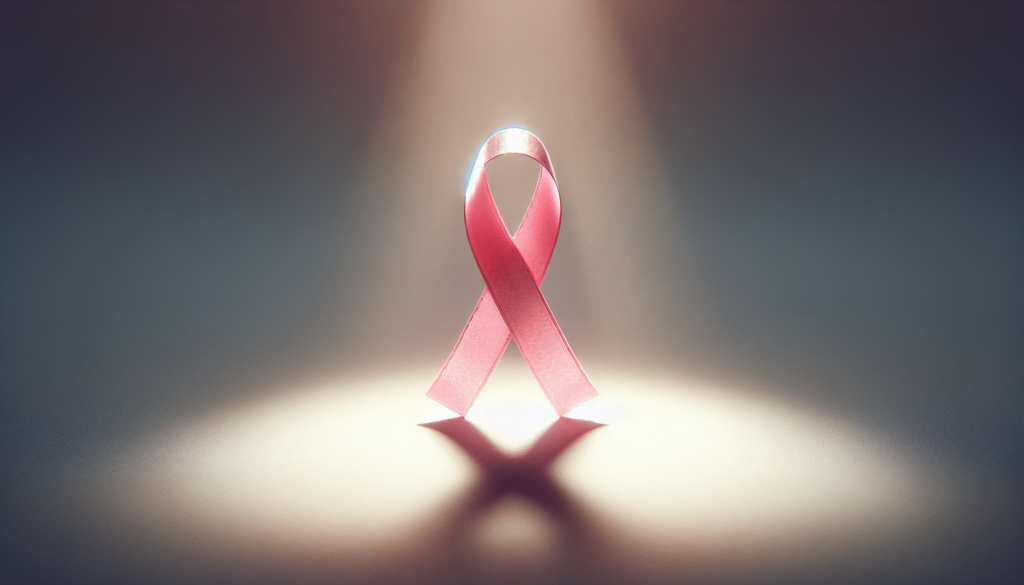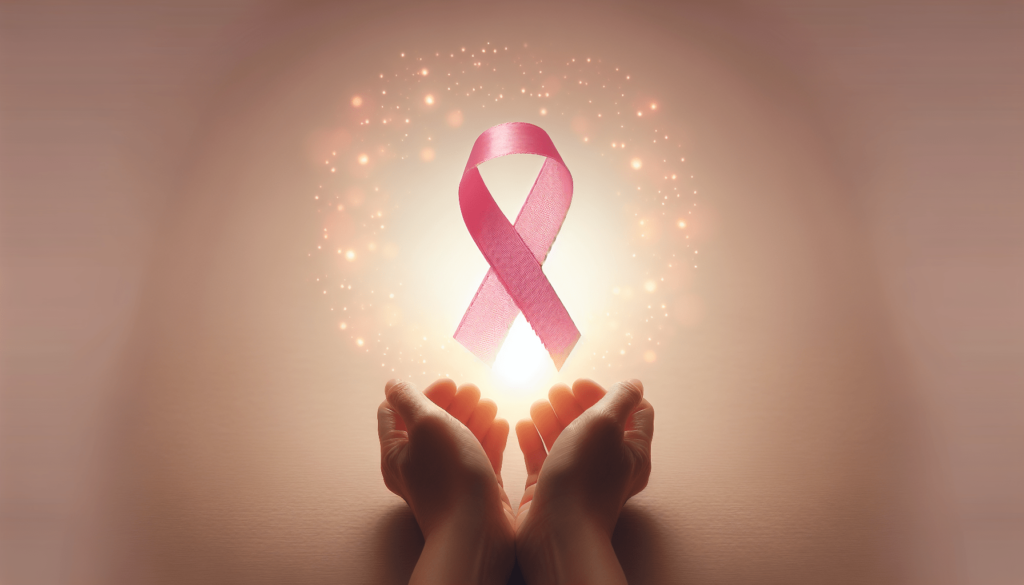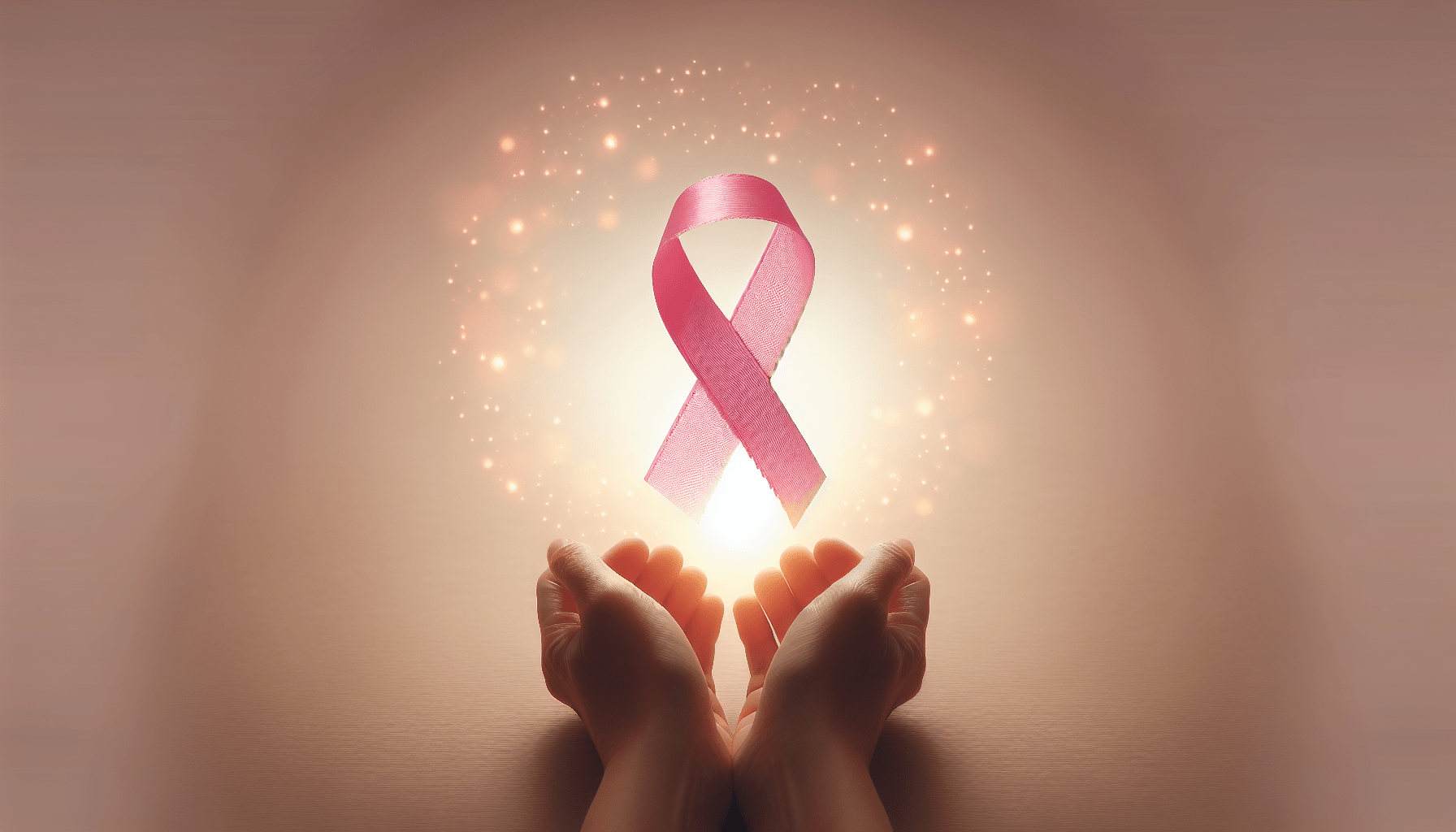In “Best Ways to Prevent Breast Cancer,” you’ll discover practical and effective tips to help safeguard your health. From dietary choices to lifestyle changes, this guide offers a comprehensive look at proven methods to reduce your risk. By incorporating these strategies into your daily routine, you can take proactive steps towards a healthier future and significantly decrease the likelihood of developing breast cancer. Have you ever wondered if there are tangible steps you can take to prevent breast cancer? It’s a thought that crosses many minds, and the good news is that there are indeed several ways to reduce your risk. While some risk factors, like genetics, are beyond your control, there are lifestyle changes you can make that may help keep breast cancer at bay.

Understanding Breast Cancer
Before diving into prevention methods, it’s important to understand what breast cancer is. Breast cancer occurs when cells in your breast grow uncontrollably and form a tumor. If the tumor is malignant, it can spread to other parts of your body. Early detection and prevention are key to managing your risk.
What Causes Breast Cancer?
Breast cancer doesn’t have a single cause; it’s typically a result of a combination of genetic, environmental, and lifestyle factors. While some aspects, such as family history and age, can’t be changed, lifestyle factors are more flexible and can be adjusted to reduce risk.
Genetic Factors
Some people inherit mutations in certain genes, like BRCA1 and BRCA2, which significantly increase their chances of developing breast cancer. If you’re concerned about your genetic risk, genetic testing can offer some insights.
The Role of Genetics
Genetics play a crucial role, and while you can’t change your genetic makeup, being aware of your familial risk can influence your preventive measures. If you have a family history of breast cancer, discussing it with your doctor can provide guidance on more specific preventive actions.
Lifestyle Changes for Prevention
Now, let’s dive into the actionable steps you can take to reduce your risk of developing breast cancer. These lifestyle changes not only help with breast cancer prevention but also contribute to overall well-being.
Maintain a Healthy Weight
Being overweight or obese after menopause increases the risk of breast cancer. Estrogen is produced in fat tissue, and having more fat tissue can increase your levels of estrogen, which can prompt the development of certain types of breast cancer.
Tips for Maintaining a Healthy Weight
- Balanced Diet: Focus on eating fruits, vegetables, whole grains, and lean proteins.
- Regular Exercise: Aim for at least 150 minutes of moderate exercise or 75 minutes of vigorous exercise each week.
- Mindful Eating: Pay attention to portion sizes and avoid overeating.
Exercise Regularly
Physical activity helps you maintain a healthy weight and boosts your immune system. Exercise is also linked to lower estrogen levels, which can reduce the risk of developing breast cancer.
Types of Exercise
- Cardiovascular: Activities like walking, running, and swimming.
- Strength Training: Weight lifting or bodyweight exercises.
- Flexibility and Balance: Yoga or Pilates.
Limit Alcohol Consumption
Drinking alcohol increases the risk of breast cancer. The more alcohol you consume, the higher your risk. If you choose to drink, limit yourself to no more than one drink per day.
Alcohol and Breast Cancer Risk
| Number of Drinks | Relative Risk Increase |
|---|---|
| 1 drink/day | Slight increase |
| 2-3 drinks/day | Moderate increase |
| More than 3 | High increase |
Avoid Smoking
Smoking is bad for your health in many ways, and research suggests a link between smoking and a higher risk of breast cancer, particularly in premenopausal women.
Quitting Smoking
- Support Groups: Join a quit-smoking program.
- Nicotine Replacement: Consider using patches or gum.
- Prescription Medications: Consult your doctor for options.
Breastfeed if Possible
Breastfeeding for a total of one year or more (combined for all children) lowers the risk of breast cancer. It is thought that this may be because it reduces a woman’s total number of menstrual cycles and, hence, her exposure to hormones that can promote breast cancer growth.
Benefits of Breastfeeding
- Hormonal Regulation: Lower exposure to estrogen.
- Healthier Weight Post-Pregnancy: Helps in losing pregnancy weight.
Dietary Changes
What you eat can also influence your breast cancer risk. While no single food can prevent cancer, a healthy diet can improve your overall health and potentially lower your risk.
Consume Plenty of Fruits and Vegetables
A diet high in vegetables and fruits can reduce cancer risk. They contain antioxidants and other nutrients that may help protect against cancer.
Recommended Fruits and Vegetables
- Berries: Blueberries, raspberries, and strawberries.
- Leafy Greens: Spinach, kale, and arugula.
- Cruciferous Vegetables: Broccoli, cauliflower, and Brussels sprouts.
Choose Whole Grains
Whole grains are high in fiber and nutrients, which can help reduce the risk of cancer. They also help in maintaining a healthy weight, which is crucial for breast cancer prevention.
Whole Grain Options
- Brown Rice: Instead of white rice.
- Quinoa: A gluten-free grain.
- Whole Wheat: Bread and pasta.
Limit Processed Foods and Sugars
Processed foods and sugars contribute to obesity, which is a risk factor for breast cancer. Opt for natural, whole foods whenever possible.
Tips for Limiting Processed Foods
- Cook at Home: Control the ingredients you use.
- Read Labels: Avoid foods with long ingredient lists.
- Healthy Snacks: Choose fruits, nuts, and seeds.

Medical Interventions
In addition to lifestyle changes, certain medical interventions can also help reduce breast cancer risk. These should be discussed with healthcare providers to determine personal suitability.
Regular Screenings
Regular mammograms and screenings can help detect breast cancer early, when it is most treatable. The frequency of screenings often depends on your age and risk factors.
Screening Guidelines
| Age Group | Recommended Screening Frequency |
|---|---|
| 40-44 | Annual mammograms (optional) |
| 45-54 | Annual mammograms |
| 55 and older | Mammograms every 2 years or annually |
Medications
For women at high risk, medications that lower estrogen levels could be beneficial. These medications include tamoxifen and raloxifene and are typically used under medical guidance.
Benefits and Risks of Medication
- Reduces Risk: Lowers the chance of developing breast cancer.
- Side Effects: Can include blood clots and hot flashes.
Prophylactic Surgery
For those with extremely high risk, such as carriers of BRCA1 or BRCA2 gene mutations, prophylactic (preventive) mastectomy or oophorectomy may be an option. These surgeries significantly reduce the risk of developing breast cancer.
Considerations for Surgery
- Effectiveness: Significantly reduces breast cancer risk.
- Emotional and Physical Impact: Important to consider the emotional and physical ramifications of such a procedure.
Environmental Factors
Being mindful of your environment can also play a role in breast cancer prevention. Some chemicals and radiations have been linked to an increased risk of cancer.
Avoid Radiation Exposure
Exposure to radiation, particularly during medical treatments, can increase the risk of breast cancer. Always discuss the necessity and safety of radiation-related procedures with your healthcare provider.
Minimizing Radiation Exposure
- Limit X-rays and CT Scans: Only when necessary.
- Protective Measures: Using lead aprons during medical imaging.
Limit Exposure to Chemicals
Certain chemicals in your environment, such as pesticides and industrial pollutants, are thought to increase the risk of breast cancer. Opt for natural and organic products when possible and avoid unnecessary exposure to harmful substances.
Harmful Chemicals to Avoid
| Chemical | Found In |
|---|---|
| Pesticides | Non-organic produce, insecticides |
| BPA (Bisphenol A) | Plastics, canned foods |
| Parabens | Personal care products |
Emotional and Mental Well-being
Your mental health is just as important as your physical health. Chronic stress and emotional distress have been linked to a higher risk of various illnesses, including breast cancer.
Manage Stress
High levels of stress can negatively affect your health, and while the direct link between stress and breast cancer isn’t definitive, managing stress is beneficial for overall health.
Stress Management Techniques
- Mindfulness Meditation: Regular practice can reduce stress levels.
- Physical Activity: Exercise acts as a natural stress reliever.
- Hobbies: Engaging in activities you enjoy can be another way to de-stress.
Strengthen Emotional Support Systems
Having a strong social support system provides emotional comfort and can improve mental health.
Building a Support System
- Family and Friends: Keep close relationships.
- Support Groups: Join groups where you can share experiences and advice.
- Professional Help: Consulting a therapist or counselor when needed.
The Impact of Hormones
Hormones, particularly estrogen and progesterone, play a role in breast cancer risk. Controlling your exposure to these hormones can help in reducing risk.
Limit Hormone Therapy
Hormone Replacement Therapy (HRT), especially when used for more than five years, can increase the risk of breast cancer. If you need HRT for menopausal symptoms, discuss the risks and benefits with your doctor.
Alternatives to Hormone Therapy
- Non-Hormonal Medications: Such as antidepressants for hot flashes.
- Lifestyle Changes: Diet adjustments, regular exercise.
Menstrual History
Women who started menstruating before age 12 or began menopause after age 55 have an increased risk for breast cancer, likely due to prolonged exposure to estrogen.
Menstrual History and Risk
While you can’t change your menstrual history, being aware of it can help you and your healthcare provider personalize your prevention strategy.
Empowering Yourself with Knowledge
The more you know about breast cancer and prevention, the more empowered you are to take control of your health. Knowledge is power, and staying informed can make a significant difference.
Stay Informed
Medical guidelines and recommendations change as new research becomes available. Stay informed by reading reputable sources, attending health seminars, and having regular discussions with your healthcare provider.
Participate in Research
If you’re interested, participating in breast cancer research can help scientists understand more about the disease and develop better prevention and treatment methods.
Conclusion
Preventing breast cancer involves a multifaceted approach that includes lifestyle modifications, environmental awareness, and medical interventions. While not all risk factors can be controlled, making informed choices can significantly reduce your risk. It’s about making proactive, conscious decisions that prioritize your health and well-being. The journey is ongoing, but every step you take is a step towards a healthier future. Keep asking questions, stay informed, and take charge of your health—you have the power to make a difference.
